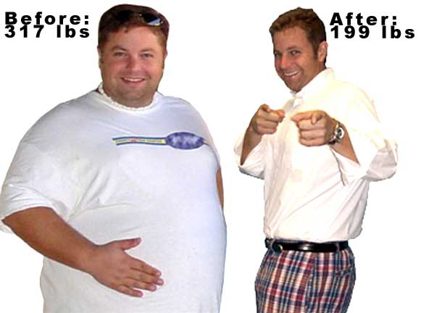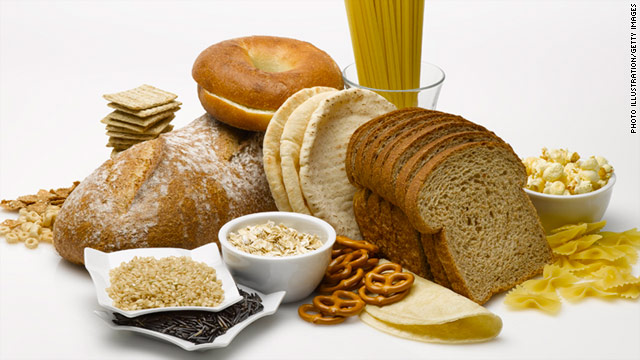Obesity Is An Addiction Not A Lifestyle
Why Obesity Is An Addiction Not A Lifestyle
Obesity is rapidly becoming the single biggest health risk in the world. There are over one billion obese adults worldwide, and this number is growing daily. The United States has the highest obesity rates out of all the developed countries surveyed. Estimates claim that nearly a third of all adults over the age of twenty in the U.S. are obese.
 Obesity can lead to many metabolic disorders, including diabetes, high blood pressure or hypertension, cholesterol-related diseases, heart disease, and osteoarthritis. The risk of cancer arising in organs such as the kidneys, gallbladder, prostrate, and breasts also increases exponentially with increased body weight.
Obesity can lead to many metabolic disorders, including diabetes, high blood pressure or hypertension, cholesterol-related diseases, heart disease, and osteoarthritis. The risk of cancer arising in organs such as the kidneys, gallbladder, prostrate, and breasts also increases exponentially with increased body weight.
A person is judged to be obese if their BMI (Body Mass Index) exceeds 30. The calculation for BMI is kg/m2, or weight in kilograms divided the square of the height in meters.
To many observers, obesity is an indication of laziness or lack of personal care. A Recent study into this subject has shown that many factors are responsible for the meteoric rise in obesity rates over recent years. Possible causes include sedentary lifestyles, the prevalence and convenience of fast food, and highly processed meals containing high levels of fats and sugars. Also, overweight people tend to marry other overweight people and pass the genes that predispose them to gain weight on to the next generation. The poor eating habits of the parents are also passed on to the children through imitation and observation.
There are also heightened stress levels experienced by many people in today’s society, and the response to this stress is often over indulgence in “comfort foods”.
There is now also evidence that supports the theory that obesity is an addiction. Studies using magnetic resonance imaging (MRI) show that obese people experience the same chemical response to eating as drug addicts do to narcotics. There is also evidence that dopamine levels are increased by eating, inducing a feeling of euphoria and well-being that can only be replicated by eating more.
In The Canadian Medical Association Journal, researcher Dr. Valerie Taylor writes: “The concept of addiction is complex, and the delineation of its defining characteristics has fostered considerable debate. Despite a lack of consensus, researchers nevertheless agree that the process involves a compulsive pattern of use, even in the face of negative health and social consequences.”
It used to be believed that behavioral addictions such eating, sex, and gambling were not true addictions, because the need for these behaviors was psychological rather than physiological, as in the case of narcotics and alcohol which perceptibly alter and affect the brain chemistry. However, it has come to be proven that these behaviors cause the same chemical changes in the brain as substances such as drugs.
As with other addictions, the user becomes accustomed to the addicting substance, in this case, food, with the result that ever-increasing quantities are required to elicit the same response. And as with other addictions, food addicts can suffer withdrawal symptoms when the food is restricted, as when dieting.
 There are other parallels in patterns of behavior between overeaters and substance abusers. They will attempt, unsuccessfully, to “quit” the addiction, and their eating habits can affect their social interactions and other activities. As with drug and alcohol addicts, overeaters continue the pattern of socially and self-destructive behavior despite knowing the effects of such behavior on their bodies and the lives of those around them. Substance abusers and overeaters also share some psychological traits, and some studies have shown that food addicts also have other dependencies.
There are other parallels in patterns of behavior between overeaters and substance abusers. They will attempt, unsuccessfully, to “quit” the addiction, and their eating habits can affect their social interactions and other activities. As with drug and alcohol addicts, overeaters continue the pattern of socially and self-destructive behavior despite knowing the effects of such behavior on their bodies and the lives of those around them. Substance abusers and overeaters also share some psychological traits, and some studies have shown that food addicts also have other dependencies.
One obstacle in the treatment of food addiction is that food is necessary to sustain life. It is impossible to go “cold turkey”, for simple reasons of survival.
Addiction therapies such as twelve step programs and pharmacological treatments can be applied to overeating in the same way that they are to alcohol and drug abuse, and have shown to yield good results.
Preventing food addiction in children is easier than curing it in adults. Educating children in healthy eating habits and the benefits of a healthy meal plan can help to prevent the occurrence of overeating in later life.
Check out our Integrative Addiction Conference 2016 being held in Austin, Texas
Viewing obesity as an addiction and applying similar treatment methods can improve results in those individuals where previous weight-loss efforts yielded no result. It has been found that the traditional weight loss methods of improved diet and exercise will not solve the problem if the underlying issue is a psychological one. While they may show initial improvements, most obese people will not maintain weight loss unless a holistic treatment is implemented to address the addictive behavior.
At the Integrated Addiction Conference to be held later this year, the relationship of obesity to addiction will be explored in greater detail by expert speakers. Register now at http://regenerativepotential.com/integrativeaddictionconference/ for access to the conference and to learn more about the program and other topics that will come under discussion.







